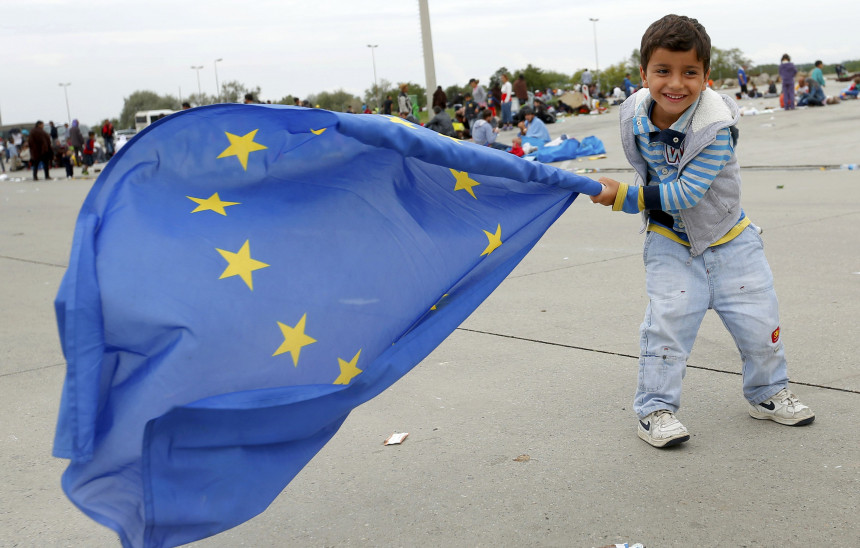
Economic migration and mass movements of refugees are two of the biggest challenges facing the European Union in recent times. So far, UNHCR figures show that the conflict in Syria has caused the displacement of 12 million people, 4 of them outside the Syrian borders and the remaining 8 million inside. There are almost two million In Turkey. In Europe, according to the European Commission, the number of asylum seekers throughout the EU has increased by 44% from 435,000 in 2013 to 626,000 in 2014. According to the Frontex, from January to June, there have been a total of 340,000 entries in EU countries EU, 130,000 in the Greek islands, 102,000 through the Hungarian border and 91,000 throughout Italy. Moreover, according to minimum estimates from the UN, it is expected that at least 850,000 people cross the Mediterranean to seek refuge in Europe between this year and next. The lack of a European response is already beginning to block the Schengen area and could affect both the socio-economic dimension, as other political domains such as defence, counter-terrorism or even intra-EU relations among states, jeopardizing the Union's fundamental values themselves.
Paradoxically, the European demographic situation that countries share with financial results as diverse as Germany or Spain, is alarming. More people (more workers and consumers) are needed before the demographic crisis is expected to hit in 2025. While most immigrants will not be able to cover the gaps in the labour market immediately, they will help to strengthen the recovery in the consumption, which, though real, is too weak to have a significant effect on employment, let alone raise wages.
Due to the increasing migratory pressure and strengthening borders by the centre-right European Governments (with the aim of reaping the political benefit that immigration keeps on giving, compared to the actual impact), immigrants and refugees have been forced to change land routes for maritime ones, more dangerous than the former, the reason why tragedies have not stopped occuring. In September 2015, after a recent crisis of image, the European Commission re-launched its plan to address this situation.
What has been done so far?
After the sinking of a ship with more than 950 people earlier this year, the European Commission presented a proposal to the European Council in May that included the relocation of 40,000 people already on EU territory and the resettlement of 20,000 people outside EU in the next two years. Under the influence of ideological positions and electoral pressures, governments rejected the proposal, including the Spanish Government, which refused to accept it, offering instead to accommodate 1,300 refugees arriving exclusively from Italy and Greece, compared to 4,288 who they had sent back. This rejection, added to other realities such as lack of economic and political resources of countries in the frontline (Greece) or tax cuts in social and welfare matters, together have contributed to the worst refugee crisis that Europe has lived since World War II has got out of control. After this crisis of image in September, the European Commission is seeking a consensus solution to strengthen the image of EU solidarity.
What is the European Union is proposing?
After the initial poor crisis management (which culminated in the European Council's rejection of the Commission's proposal in May 2015), the increase in migratory pressure in countries vulnerable to xenophobic movements, and the ongoing disasters in the Mediterranean, the EU and its member states have begun to show solidarity based on shared responsibility and joint steps taken. On September 9, the European Commission made a new proposal to relocate 120,000 refugees from Italy, Greece and Hungary. Being part of a broader package of measures, including a list of safe countries of origin, a mechanism for permanent relocation that would be automatically activated in future emergencies, in parallel with diplomatic action to stabilise the countries from which refugees flee. In addition, emergency financing would double to assist Member States most affected, from 25 to 50 million Euros per year. It is also expected that partnerships will be promoted with European local authorities for the identification and registration of incoming refugees and thus be able to facilitate a quick return to those who do not require international protection. The plan of action also plays a decisive role in bilateral agreements with countries of origin and transit. To this end, the EU deployed immigration liaison officers in their delegations and provided 96,800 million Euros in aid to external cooperation for the period 2014-2020.
And what about Spain?
For its part, the government of Spain (with its eye on general elections), which had only taken limited actions such as agreements with the Autonomous Regions to "harmonize the social and health care provided to illegal aliens in Spain, measures that contemplate the minimum criteria of proving residence in the region for six immediately preceding months", is now aligned with the Community thesis. The government would accept triple the refugees, which at first was refused, claiming over-burdening in their support to economic migration. However, making a comparison of income and population, according to the World Bank, the number of refugees in 2014, according to UNHCR, Spain is at the bottom of European league table of developed countries in the number of refugees admitted. According to this data, Lebanon carries a load 20,148 times greater; Chad, something like 275 as much, Sweden 117 and Germany and France 25 and 31 respectively. In the end, the amount Spain will be required to accept with be the third highest in the EU (14,931), behind Germany (31,443 refugees) and France (24,031) and is the result of a calculation based on the same four criteria proposed in May: Population GDP, unemployment and the previous effort of each host country.
What can we expect?
In the first instance, the the proposal of 14th September, 2015, has again been blocked, especially by countries like Poland, Slovakia, Czech Republic and







